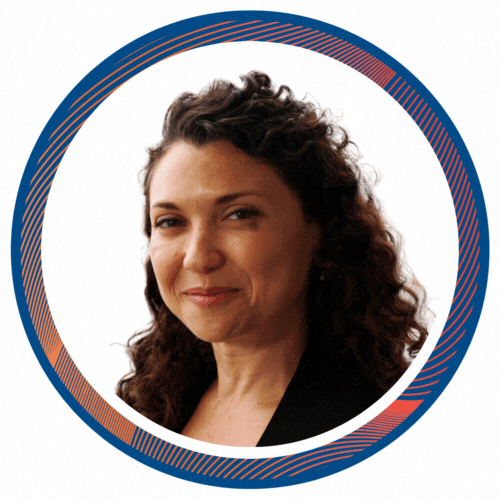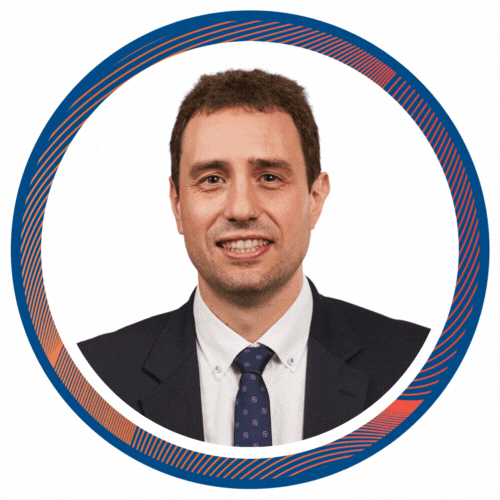Basic Science Seminar
The study and management of liver cancer have significantly progressed in recent years, moving beyond traditional methods to incorporate genomics, epigenomics, and exposomics that influence liver cancer risk and progression. This shift is a steppingstone to personalised medicine, where treatments can be tailored to each patient’s specific characteristics, offering the potential to revolutionise liver cancer care with more targeted therapies.
The one-day Basic Science Seminar at the EASL Congress 2025 will delve into the exposome’s role in liver carcinogenesis, molecular and environmental factors in liver cancer, and novel therapies targeting cancer cells and the tumor microenvironment (TME). Its interactive format features four sessions of concise, dual-format lectures with Q&A, promoting dialogue among experts and attendees. The seminar is tailored for researchers, clinicians, trainees and students eager to deepen their knowledge of liver cancer biology and precision medicine.

Luke Boulter (United Kingdom)
Dr Luke Boulter leads a group of researchers at the MRC Human Genetics Unit who are interested in the biology of bile duct development, regeneration and cancer. Having received his Bachelor’s degree from the University of York, Luke moved to Edinburgh to study the role of inflammation in the proliferation and differentiation of hepatic progenitor cells with Stuart Forbes. During this time, Luke was the first to demonstrate that during regeneration in the adult liver, progenitor cells make fate choices and different signaling pathways drive these decisions. Importantly, these same signals reactivate in bile duct cancer (cholangiocarcinoma) and drive tumour growth, where Luke and his team have shown that modulation of these signals can stem the growth of cholangiocarcinoma.

Leila Akkari (the Netherlands)
Leila Akkari is a group leader at the Netherlands Cancer Institute in the Tumor Biology and Immunology department and a senior member of the Oncode Institute. Her research focuses on innate immune cell plasticity applied to the biology of cancers, using elaborate murine models of primary tumors, including brain and liver cancers. Her group investigates and targets the functions of these immune cells in tumor maintenance and therapeutic resistance in order to identify therapeutic vulnerabilities to exploit. Dr Akkari is an expert on tumor-associated macrophages, as evident from grants she received (KWF (2017-YIG, 2019, 2021)); NWO-XL (2022); ERC-Synergy (2023); Vidi (2019), international brain cancer (BTCF) and myeloid cells in cancer (KWF) consortium grants and EMBO Young Investigator Program (2021) and several pioneering studies on this subject. Moreover, she is involved in science communication advocating for diversity and inclusion in the STEM community.

Jesus Banales (Spain)
Jesus M. Banales is Ikerbasque Research Professor and Head of the Liver Diseases Group at the Biogipuzkoa Health Research Institute – Donostia Univ. Hospital in San Sebastian (Spain). Moreover, he is Full Professor of Biochemistry and Genetics at the Univ. of Navarra (Spain) and Assistant Professor of Medicine/Science at Mayo Clinic (Rochester, MN, USA) and Univ. Area Andina (Bogota, Colombia). With 20 years of experience in liver pathobiology and cancer, his multidisciplinary group focuses on novel diagnostic, prognostic, and therapeutic strategies.
- Gain insights into the role of the exposome in liver cancer initiation and progression.
- Recognise the importance of molecular basics (genomic, epigenomic, metabolic), and the microenvironment, in the development and progression of the different liver cancer types and subtypes.
- Understand the key drivers influencing tumor evolution and liver metastasis.
- Appreciate novel, cutting-edge therapeutic approaches for liver cancers.
This session will examine liver cancer biology in the background of cirrhosis or absence thereof, focusing on lifestyle factors that impact tumor initiation and growth.
This session will discuss oncogenes in HCC and CCA, common and different molecular features, cells of origin, local tumor microenvironment, and immune and stromal cell dynamics post-therapy.
This session will explore drivers of tumor evolution, metabolic reprogramming, and mechanisms of metastasis that are mainly acting systemically.
This session will discuss current advances, challenges, and opportunities in targeted therapies to local TME cells and approaches to overcome resistance in liver cancer treatment.

